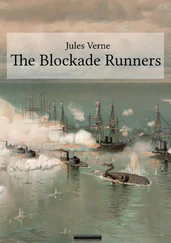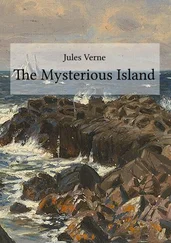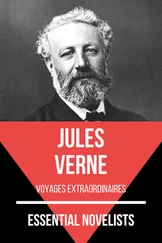Such was the venturesome journey of Dr. Barth.
Dr. Ferguson carefully noted the fact, that he had stopped at four degrees north latitude and seventeen degrees west longitude.
Now let us see what Lieutenants Burton and Speke accomplished in Eastern Africa.
The various expeditions that had ascended the Nile could never manage to reach the mysterious source of that river. According to the narrative of the German doctor, Ferdinand Werne, the expedition attempted in 1840, under the auspices of Mehemet Ali, stopped at Gondokoro, between the fourth and fifth parallels of north latitude.
In 1855, Brun-Rollet, a native of Savoy, appointed consul for Sardinia in Eastern Soudan, to take the place of Vaudey, who had just died, set out from Karthoum, and, under the name of Yacoub the merchant, trading in gums and ivory, got as far as Belenia, beyond the fourth degree, but had to return in ill-health to Karthoum, where he died in 1857.
Neither Dr. Penney—the head of the Egyptian medical service, who, in a small steamer, penetrated one degree beyond Gondokoro, and then came back to die of exhaustion at Karthoum—nor Miani, the Venetian, who, turning the cataracts below Gondokoro, reached the second parallel— nor the Maltese trader, Andrea Debono, who pushed his journey up the Nile still farther—could work their way beyond the apparently impassable limit.
In 1859, M. Guillaume Lejean, intrusted with a mission by the French Government, reached Karthoum by way of the Red Sea, and embarked upon the Nile with a retinue of twentyone hired men and twenty soldiers, but he could not get past Gondokoro, and ran extreme risk of his life among the negro tribes, who were in full revolt. The expedition directed by M. d’Escayrac de Lauture made an equally unsuccessful attempt to reach the famous sources of the Nile.
This fatal limit invariably brought every traveller to a halt. In ancient times, the ambassadors of Nero reached the ninth degree of latitude, but in eighteen centuries only from five to six degrees, or from three hundred to three hundred and sixty geographical miles, were gained.
Many travellers endeavored to reach the sources of the Nile by taking their point of departure on the eastern coast of Africa.
Between 1768 and 1772 the Scotch traveller, Bruce, set out from Massowah, a port of Abyssinia, traversed the Tigre, visited the ruins of Axum, saw the sources of the Nile where they did not exist, and obtained no serious result.
In 1844, Dr. Krapf, an Anglican missionary, founded an establishment at Monbaz, on the coast of Zanguebar, and, in company with the Rev. Dr. Rebmann, discovered two mountain-ranges three hundred miles from the coast. These were the mountains of Kilimandjaro and Kenia, which Messrs. de Heuglin and Thornton have partly scaled so recently.
In 1845, Maizan, the French explorer, disembarked, alone, at Bagamayo, directly opposite to Zanzibar, and got as far as Deje-la-Mhora, where the chief caused him to be put to death in the most cruel torment.
In 1859, in the month of August, the young traveller, Roscher, from Hamburg, set out with a caravan of Arab merchants, reached Lake Nyassa, and was there assassinated while he slept.
Finally, in 1857, Lieutenants Burton and Speke, both officers in the Bengal army, were sent by the London Geographical Society to explore the great African lakes, and on the 17th of June they quitted Zanzibar, and plunged directly into the west.
After four months of incredible suffering, their baggage having been pillaged, and their attendants beaten and slain, they arrived at Kazeh, a sort of central rendezvous for traders and caravans. They were in the midst of the country of the Moon, and there they collected some precious documents concerning the manners, government, religion, fauna, and flora of the region. They next made for the first of the great lakes, the one named Tanganayika, situated between the third and eighth degrees of south latitude. They reached it on the 14th of February, 1858, and visited the various tribes residing on its banks, the most of whom are cannibals.
They departed again on the 26th of May, and reentered Kazeh on the 20th of June. There Burton, who was completely worn out, lay ill for several months, during which time Speke made a push to the northward of more than three hundred miles, going as far as Lake Okeracua, which he came in sight of on the 3d of August; but he could descry only the opening of it at latitude two degrees thirty minutes.
He reached Kazeh, on his return, on the 25th of August, and, in company with Burton, again took up the route to Zanzibar, where they arrived in the month of March in the following year. These two daring explorers then reembarked for England; and the Geographical Society of Paris decreed them its annual prize medal.
Dr. Ferguson carefully remarked that they had not gone beyond the second degree of south latitude, nor the twenty-ninth of east longitude.
The problem, therefore, was how to link the explorations of Burton and Speke with those of Dr. Barth, since to do so was to undertake to traverse an extent of more than twelve degrees of territory.
Table of Contents
Kennedy’s Dreams.—Articles and Pronouns in the Plural.—Dick’s Insinuations. —A Promenade over the Map of Africa.—What is contained between two Points of the Compass.—Expeditions now on foot.—Speke and Grant.—Krapf, De Decken, and De Heuglin.
Dr. Ferguson energetically pushed the preparations for his departure, and in person superintended the construction of his balloon, with certain modifications; in regard to which he observed the most absolute silence. For a long time past he had been applying himself to the study of the Arab language and the various Mandingoe idioms, and, thanks to his talents as a polyglot, he had made rapid progress.
In the mean while his friend, the sportsman, never let him out of his sight—afraid, no doubt, that the doctor might take his departure, without saying a word to anybody. On this subject, he regaled him with the most persuasive arguments, which, however, did NOT persuade Samuel Ferguson, and wasted his breath in pathetic entreaties, by which the latter seemed to be but slightly moved. In fine, Dick felt that the doctor was slipping through his fingers.
The poor Scot was really to be pitied. He could not look upon the azure vault without a sombre terror: when asleep, he felt oscillations that made his head reel; and every night he had visions of being swung aloft at immeasurable heights.
We must add that, during these fearful nightmares, he once or twice fell out of bed. His first care then was to show Ferguson a severe contusion that he had received on the cranium. “And yet,” he would add, with warmth, “that was at the height of only three feet—not an inch more—and such a bump as this! Only think, then!”
This insinuation, full of sad meaning as it was, did not seem to touch the doctor’s heart.
“We’ll not fall,” was his invariable reply.
“But, still, suppose that we WERE to fall!”
“We will NOT fall!”
This was decisive, and Kennedy had nothing more to say.
What particularly exasperated Dick was, that the doctor seemed completely to lose sight of his personality— of his—Kennedy’s—and to look upon him as irrevocably destined to become his aerial companion. Not even the shadow of a doubt was ever suggested; and Samuel made an intolerable misuse of the first person plural:
“‘We’ are getting along; ‘we’ shall be ready on the –-; ‘we’ shall start on the –-,” etc., etc.
And then there was the singular possessive adjective:
“‘Our’ balloon; ‘our’ car; ‘our’ expedition.”
And the same in the plural, too:
“‘Our’ preparations; ‘our’ discoveries; ‘our’ ascensions.”
Читать дальше












